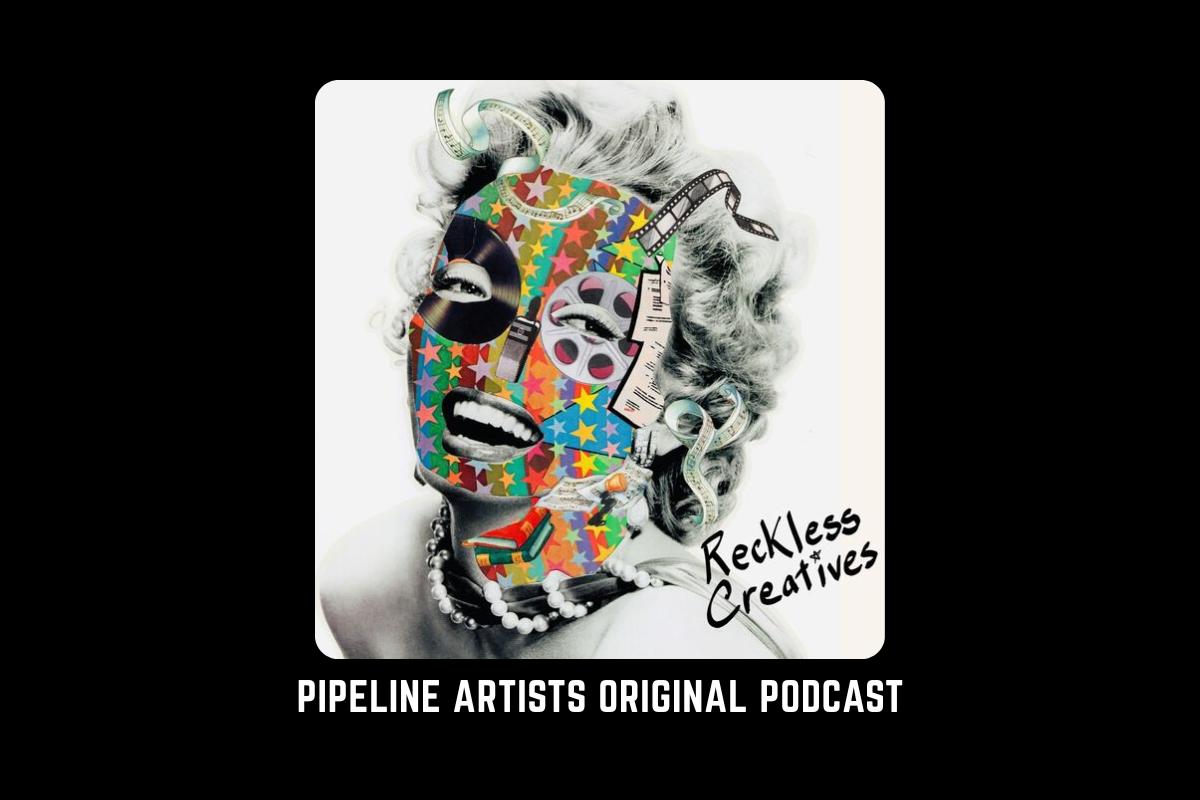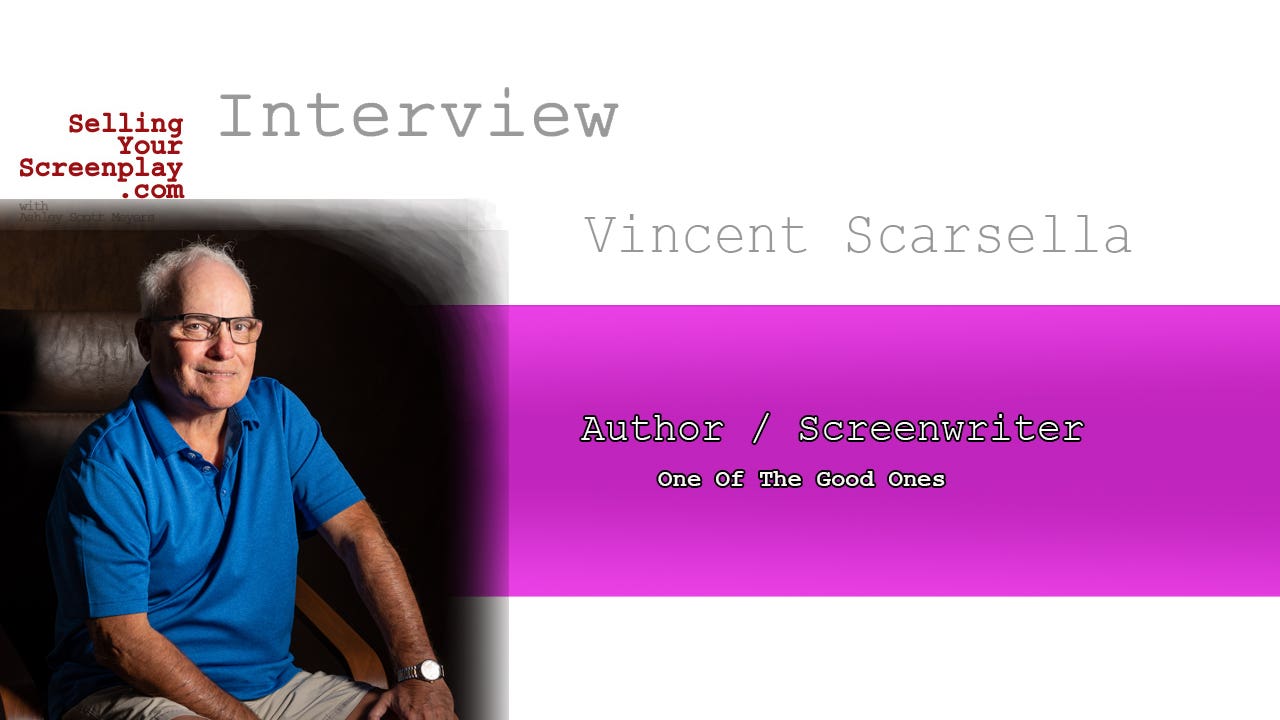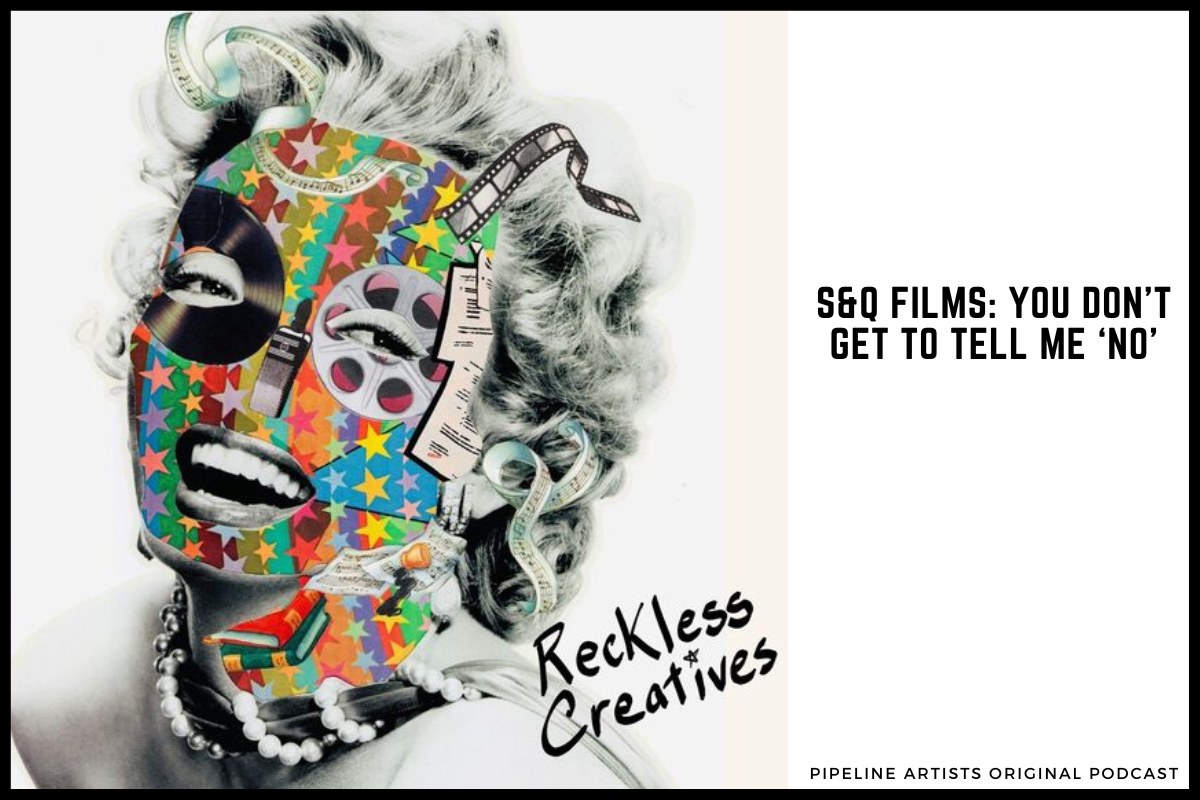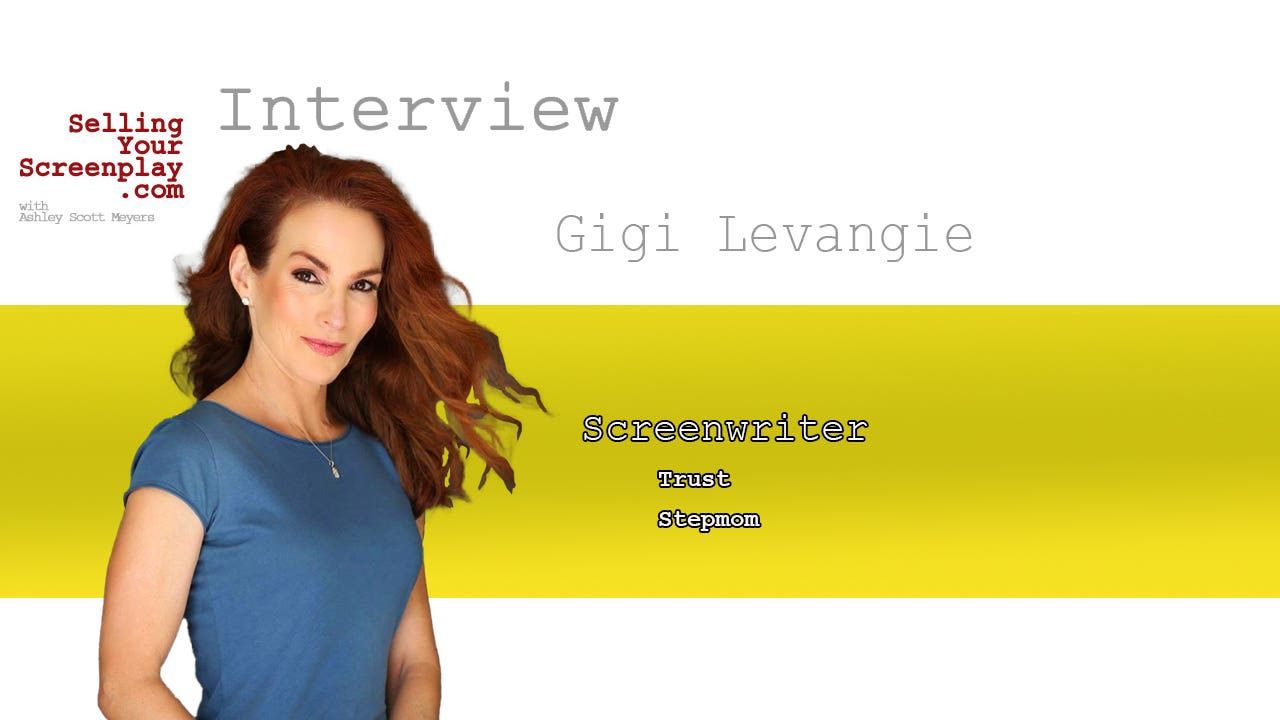Five Good Reasons for an Author to Record an Audiobook
Clive Frayne gives five good reasons why authors should record an audiobook, ranging from improving sales of their novel to connecting with fans.
There are at least five good reasons for an author to record an audio book. In this article, I'm going to explain mine.
This year, after far too many years screenwriting, I finally put the screenplays aside. I cancelled all the meetings and put the word out to my friends and contacts that I was taking a break. Stepping away from the industry, so I could write a novel.
I had a lot of reasons for this move from screenwriting into prose. No small part of which was I’ve wanted to write a novel ever since I was a little kid. After all, that’s what writers do, isn’t it? They sit at ratty old desks in their garret, and in their filthy Parisian slum, they write a novel, possibly whilst drinking too much and having tragic love affairs.
Given that I’ve already had a lifetime’s worth of drinking and tragic relationships, it was about time to get on with the words-on-paper part of being a writer. I also really needed to break from of the discipline of screenwriting and to come at the craft of writing from another angle – an angle with more freedom to shape the end product than a screenwriter ever gets.
So, after messing about with the ground work half a dozen novel projects, adaptations of existing screenplays and the writing of a shed load of opening chapters, I finally found a new story I really wanted to tell. It’s a steampunk novel called Clockwork Revolution, set in a dystopian and faux-Victorian future. It’s the story of how a Princess, an Artist and a Thief find themselves caught up in the struggle to overthrow the existing and failing regime.
However, what may surprise some of you is that I decided, right from day one of writing, was that recording the audiobook of the novel would be an integral part of my writing process. Not just in terms of sales but for other reasons as well. But, let’s start with the obvious one.
1. Audiobooks are Popular
According to research quoted by gooderader.com in 2017, “The global audiobook industry is currently evaluated at $3.5 billion dollars and the United States is currently the largest singular market with $1.8 billion dollars in audio sales in 2016 and this was a 31% increase from 2015.”
This increase follows the now firmly established trend of huge growth in the audiobook sector in comparison with continuing declines book and e-book sectors.
Basically, people are buying and consuming audio books rather than reading. This ties in with my personal experience. Over the last couple of years, I’ve found myself with less time to read actual books and more time when I can combine listening to an audiobook with another activity. I certainly buy more audiobooks than I buy regular books these days. And, I can’t remember the last time I paid for an e-book.
Given that independent and unknown authors will always have to struggle to make sales and to build a fanbase, having your material in popular format makes perfect sense. I honestly don’t understand why any author would choose to turn their back on the largest growing market for literature in favour of putting their faith in declining markets. Audiobooks make good financial sense, providing you understand how they work.
Of course, one reason authors may not be exploring audiobooks is they simply aren’t aware of what a growth market it is. Well, let’s get the word out there. Audiobooks are good for business and every writer should be considering them.
2. Make It Easy for Readers to Sample Your Novel
Every writer I’ve ever met knows just how difficult it is to get people to read your book. Even your best friends, despite making all the right noises and promises to read it, they will struggle to make the time. Given that most people are time-poor, overstretched and stressed out, reading the book of an unestablished writer is more of a chore than a pleasure. I think this is something a lot of writers underestimate. Anybody who invests time in reading your book, whether they pay for it or not, is giving you a small part of their life. That’s quite a gift they’ve given you. Even though most of my friends know and admire my work as a screenwriter, about 50% of the ones who offered to read the opening chapters of the new novel still hadn’t a month later. That’s the degree of inertia every writer needs of overcome.
What I’ve found is that when people are offered the opportunity to either read the opening chapters or to listen to the audiobook, 80% of the ones who stated a preference of the audiobook managed to find time to listen and give feedback. This is really important because the vast majority of those who engaged with the audiobook wanted to hear more and were eager to find out what happens next. What this tells me is that overcoming this initial barrier to reading is one of the most important hurdles for a writer to beat. And, what’s obvious is that audiobook samples are one of the most effective ways of getting people past that hurdle.
3. Market Research
Up to this point, I’ve been talking about the benefits of a traditional approach to audiobooks. The traditional approach being when an author completes their novel and only then turns it into an audiobook. Recording the audiobook after the book is finished is the most common way of creating an audiobook, and there are lots of very good reasons for that. The most obvious reason is recording can be a prohibitively expensive process. So, why would anyone take on that kind of expense multiple times? This is especially true of any recording undertaken before the book has gone through the editing process.
This is the point where I need to make a confession. I worked in the radio industry as a writer and producer for a lot of my professional life. Basically, given that I currently have recording tools on my laptop which are better than the ones I used professionally back in the 1990s, and that I have a good voice, it makes complete sense for me to record my own audiobook. And, given that this means my investment is only time rather than money, I have nothing to lose by recording chapters of the new book as I write them. (Editor's note: A sample of Clive's audiobook is available on Soundcloud.)
This ability to record, mix and distribute samples of my writing as I work has given me the opportunity to use audiobook samples as part of high-quality market research into my novel, research I can undertake as the novel develops. I don’t have to wait until the book is complete to make sure that people will bond with my characters or the story.
Via social media, I have collected a little group of readers, readers who have an existing interest in science-fiction as a genre, and I’ve been able to give this group samples of early chapters. The feedback I’ve had back from this process has been invaluable. Not only have I been able to gauge the level to which they’re engaging with the piece. Basically, “do they like it?” More importantly, in the feedback, I’ve discovered which parts that didn’t work for some readers or what individual reader’s own ideas were about where the story might be going. In an early draft of the first chapter, I realised the whole introduction of the book would need a radical rethink. The new version is considerably stronger than my first effort and that’s entirely down to someone listening to my first attempt and telling me honestly how they felt about it.
Of course, all of this is possible from traditional sharing of pages, PDFs or e-book samples. However, as we’ve already discussed, even with willing readers the response rate goes up dramatically when people have the option to sample your work as an audiobook. Most of my reader have listened to the book as they were driving to work, allowing them to multitask their promise to read the book. Rather than stealing valuable time from them, the audiobook sample allows them to use their fallow time to help out a mate and at the same time be part of the creation of a new novel.
4. Early Engagers are the Future of Your Book
I am finding the use of audio book samples to engage readers early in the writing process is invaluable. You’re letting these readers into the heart of the creative process. They’re getting to see the novel take shape in front of their eyes. This in itself can be an exciting prospect. If you can carry them through the whole creative process, by the time the book is finished, they’re going to be your fiercest advocates.And, if their feedback has contributed to the development of the book, if they can sense their own involvement, then they get to feel like it is as much their book as yours.I suggest that having fifty to one hundred highly engaged readers, waiting to see the finished product hit the press, is a huge head start in the process of marketing and selling your book.
There are other advantages of having an eager group of early engagers waiting for the next installment. Keeping your discipline and motivation to write when you’re writing a novel is one of the real struggles. It’s all too easy to take a few days, weeks, months away from the actual writing whilst you do other things. But, it’s only easy to procrastinate if you haven’t got your core group of early engagers eagerly waiting for the next instalmlent of the e-book/audiobook. Not only will your early-engagers keep you writing, they’ll also force you to keep the story tight and moving forwards. As you write and they read, keeping them engaged with the story will become your central motivation as you write. And, this is a good thing. It’ll be good for the book and for your writing. That doesn’t mean to say that you won’t makes mistakes as you write. It just means you’ll pick up on them faster than you would if you were writing in a vacuum.
Again, in terms of keeping the process as easy as possible for your in-process readers, audio books samples massively increase your chances of retaining your readers through the writing process. This is providing the samples are up to professional or near professional standards. (But, we’ll get into that in the next article).
5. Nothing Teaches You How to Write Quite Like Reading It Out Loud
Even if you haven’t got the ability or resources to record your own audio book as you write, I strongly recommend that you do read your book out loud and record it on any device will allow you to do this. Even if it the only person who ever hears it is you. The reason is you’ll never really know how good or bad your writing is until you read it out loud. Trust me on this one, after a lifetime of writing for the voice, the one thing I learned is that good writing sounds good when it is read out loud and bad writing sounds bad.
The main reason hearing allows us to really understand what we’ve written is we have considerably more practice at listening to spoken language than we do judging the written word. We are more likely to pick up on grammatical problems and dodgy syntax when we hear them, rather than by sight reading.
The process of reading your prose out loud, recording it and then listening back to the result will radically alter the way you write… for the better.
Hopefully, by this point I’ve convinced you that audiobooks should be at the heart of your plans for writing, developing, marketing and selling your novel. If nothing else, I hope I’ve persuaded you of the value of reading your writing out loud, even if that’s only for the positive effect it will have on your writing.
Of course, even if I have persuaded you that recording an audiobook would be a good idea, it’s entirely possible the thing that is preventing you from doing this is you don’t know how to make it happen. Well, that’s a fair point, so in part two of this article, I’m going to give you some options that mean no author has an excuse for not turning their book into an audiobook. In the next article, I’ll show you how you can put a professional audiobook onto the market, even if you don’t have the skills to do it yourself or the money to pay a professional.
Get tips on writing a novel in Jon James Miller's on-demand webinar
Script to Novel: Double Your Odds of a Sale
DOWNLOAD NOW!
Clive Frayne is a writer with over thirty years experience in broadcast media. After a very successful career running professional writing teams in the radio industry he decided to move into screenwriting. Since then he has written and directed two feature films and half a dozen award-winning short films, and authored the book The Process of Screenwriting. These days he splits his work between writing, script editing and teaching screenwriting. He is a passionate advocate of two things, process-driven screenwriting and independent filmmaking. Follow Clive on Twitter @clivefrayne





